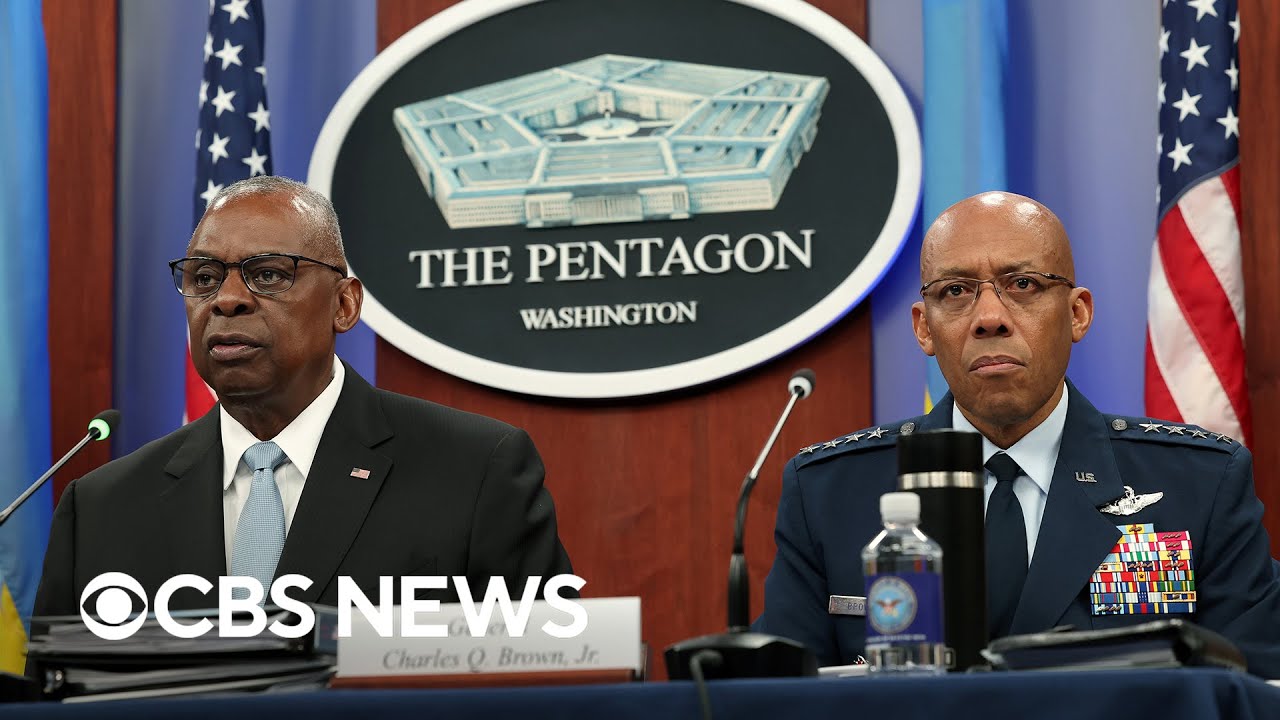Germany marks 80 years since Nazis invaded the Soviet Union | DW News
Summary
TLDRドイツはナチスがソビエト連邦に向けた侵攻の80年を記念しています。1941年6月22日の突然の攻撃は、第二世界大戦で最も大規模で血だらけの戦線となり、最終的にナチスドイツの完全な破壊につながりました。戦争の終わりには、推定27百万のソビエト市民が死亡し、そのうち14百万は市民でした。オペレーション・バルバロッサと呼ばれるこの侵攻は、消滅戦として行われ、ソビエトの捕虜たちは残酷に扱われました。ドイツの大統領フランクフューター・シュタインマイヤーは、ベルリンのドイツ・ロシア博物館で行われた式典に出席し、前ソビエト共和国からの批判に言及しました。彼らは、第二世界大戦の犠牲者数百万がドイツの記念活動で無視されていると主張しています。シュタインマイヤー大統領は、歴史を新しい対立の源にすることを防ぐために、歴史を武器に使わないように警告しました。
Takeaways
- 🇩🇪 ドイツはナチーによるソビエト連邦の侵攻から80年を迎えています。1941年6月22日に起こったこの奇襲攻撃は、第二世界大戦で最も大規模で血痕最多的であったと同時に、ナチードイツの完全な破滅につながりました。
- 💥 第二世界大戦の終結時には、推定27百万人のソビエト市民が亡くなり、そのうち14百万人が市民でした。
- 🔍 侵攻は「オペレーション・バルバロッサ」と呼ばれ、完全に抹殺するための戦争として行われ、ソビエトの捕虜は極めて残酷に扱われました。
- 👥 ナチーは前線から5.7百万人のソビエト捕虜を連行し、そのうち3百万人以上が亡くなりました。彼らはナチーの犠牲者の最大のグループの一つです。
- 🎖️ ドイツの大統領フランク=ワシンマイヤーは、この悲劇的な記念日をベルリンのドイツ・ロシア博物館で式典に出席し、演説を行いました。
- 🗣️ 元ソビエト共和国からの批判に対処し、彼らの数百万の第二世界大戦の犠牲者がドイツの記念活動で無視されていると指摘しました。
- 🚫 大統領は、記念活動が十分に行われなかったり、誤った方法で行われると、新たな分裂を生む可能性があると警告しました。
- 🛑 歴史を新しい対立や新しい形式の恨みに利用する道具として再書かれることはないように、歴史を武器化しないようにするべきだと強調しました。
- 📚 フランク=ワシンマイヤー大統領は、西ドイツで育った彼が、自宅近くに戦俘収容所があったことを知らなかったことから、ドイツ人に対してその痛みの歴史に注目を払うべきだと述べました。
- 🌏 地政学的状況が80年前に比べて変化しており、かつてソビエト連邦の一部だった国々間で今では対立や紛争が存在しています。
- 🤝 ドイツは、これらの問題に対処するために、高官が戦俘収容所や戦場を訪れ、亡くなった者を追悼するなど、小さく確かな一歩を踏んでいます。
Q & A
ナチスドイツがソビエト連邦に向けて行った攻撃は何年何月何日に起きたのですか?
-ナチスドイツによるソビエト連邦への攻撃は1941年6月22日に起きたとされています。
オペレーション・バルバロッサとは何だったのですか?
-オペレーション・バルバロッサは、ナチスドイツによるソビエト連邦への侵攻を指します。これは第二世界大戦で最も大規模で血痕の多い戦線となりました。
第二世界大戦の終結までにソビエト連邦の犠牲者数はどれくらい推定されていますか?
-第二世界大戦の終結までにソビエト連邦の犠牲者は推定される27百万人に達しました。
ソビエト連邦の捕虜はどう扱われていたと言われていますか?
-ソビエト連邦の捕虜は非常に残酷に扱われ、処刑、飢え死、強制連行などが行われました。
ナチスが捕虜をどれくらい取り押さえていたと推定されていますか?
-ナチスは4年間で5.7百万人のソビエト捕虜を収容していたとされ、そのうち3百万人以上が死亡したと推定されています。
ドイツの大統領はこの80周年をどのように記念しましたか?
-ドイツの大統領フランクフューター・シュタインマイヤーはベルリンのドイツ・ロシア博物館で式典に出席し、演説を行いました。
前ソビエト共和国からの批判とはどのようなものですか?
-前ソビエト共和国からの批判は、彼らの数百万の第二世界大戦の犠牲者がドイツの記念活動で無視されているというものです。
シュタインマイヤー大統領はどのようにこの批判に対処するべきだと述べていますか?
-シュタインマイヤー大統領は、記念活動が慎重に行われないと新たな分断を生む可能性があると警告し、歴史を新しい対立や恨みのために利用されるべきではないと述べています。
ドイツはどのようにして前ソビエト共和国の犯罪に対する認識を高めようとしていますか?
-ドイツは統一後の数年で、東の犠牲者に対する記念活動を集団的なナチ過去の記憶に統合しようと試みています。また、高官が戦俘収容所や戦場を訪れ、その地での犯罪を記念することもあります。
現在の国際情勢はこの記念活動にどのような影響を与えていますか?
-現在の国際情勢、特にロシアとウクライナの紛争は、この記念活動に影を落とし、一部の国が式典をボイコットする理由となっています。
ドイツは今後どのようにしてこれらの問題に対処する予定ですか?
-ドイツはこれらの問題に対処するために、徐々に進んでおり、政治家が戦俘収容所や戦場を訪れることで、これらの地での犯罪に対する認識を高める取り組みを行っています。
Outlines

This section is available to paid users only. Please upgrade to access this part.
Upgrade NowMindmap

This section is available to paid users only. Please upgrade to access this part.
Upgrade NowKeywords

This section is available to paid users only. Please upgrade to access this part.
Upgrade NowHighlights

This section is available to paid users only. Please upgrade to access this part.
Upgrade NowTranscripts

This section is available to paid users only. Please upgrade to access this part.
Upgrade NowBrowse More Related Video
5.0 / 5 (0 votes)






